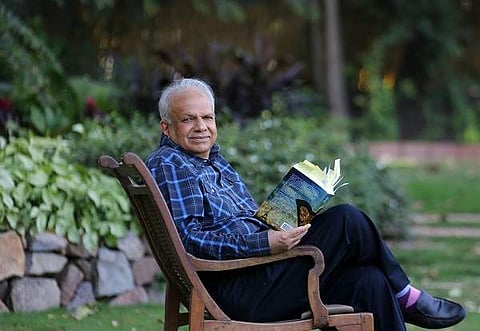

It was the best of times, it was the worst of times, it was the age of foolishness, it was the epoch of belief, it was the epoch of incredulity, it was the season of Light, it was the season of Darkness, it was the spring of hope, it was the winter of despair...”
Nidhi Dalmia’s debut novel, Harp, resonates the words of Charles Dickens as he paints the picture of a dreamy romantic world and transports his readers to 1960s. It’s a tale of three friends, Ashok, Lauren and Aparna, told through twists and turns, many emotional voyages traversing through the Europe less travelled.
The author, who grew up in the late 60s, subtly captures the little nuances of the time, including its cultural, social and political changes.
The book is replete with lucid accounts of human emotions—of pain, love and joy—and how the characters, like the normal people in real life, deal with them.
Dalmia stresses a life lived without regrets. For him it’s better to have loved and lost than not to have loved at all. His themes are universal and his characters take the help of music to pick themselves up after a messed up relation and gets back on their feet.
He tells a tale of how love and obligation compartmentalise people, making them choose between love and duty, between the head and the heart, between one’s social contract and what one wants, the individual choices one has to make with profound consequences.
The language is simple with a sprinkling of Polish, French, Hindi and Sanskrit words. It adds to the story and gives it a personal touch.
A glossary of words used from different languages is explained in the end, making the book an easy read.
This timely book throws much light on the role of cultural exchange in today’s world. Harp emphasises that tolerance and intolerance are secondary, acceptance is primary. And that opens our mind to accept things as they are.
Harp also gives a description of socio-economic situation in India and abroad prevalent at the time. It has elements of the dairy industry and business management. However, Dalmia manages to interest even a lay person with his writing. Get ready for an emotional roller-coaster.